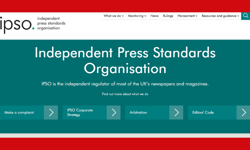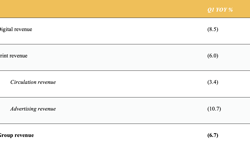| Panelists |
| Warwick Brindle (Newsstand), Jeff Bruce (Zinio), Andy Emptage (Just Media), Russ Haderer (BPA), Mark Judd (VNU) |
Firstly a reminder on definitions. Put at its simplest, digital editions are electronic replicas of the print edition. They have the same look and feel but are viewed on screen.
1. Horses for courses
No one pretends that digital will one day replace print. Both have their strengths and clever publishers are now adopting a multi platform approach to content delivery and leaving the choice of platform to the reader. Let the market decide.
2. Rich media will be tomorrow’s game
Jeff Bruce felt that rich media (the embedding of multi media content in the pages) was more "tomorrow than today." The advertising industry is not yet organised in terms of creatives or budgets and not many of them offer integrated print and digital strategies. Investment in rich media requires enough eyeballs to justify production costs and we are currently a long way from that position.
3. Lack of research into reader experience
There is a lack of credible third party industry research on the reader experience vis a vis digital editions. The key question is: are digital edition readers as engaged as print edition readers? Media buyer Andy Emptage said that more research was needed as there was a shortage of facts and figures. He needs to be comfortable that readers are reading it before he puts digital editions on his media schedules. The irony is that the technology behind digital editions allows a much greater analysis of reader behaviour than has ever or will ever be possible with print versions. It is safe to say that digital edition technology suppliers will know huge amounts about the behaviour of the audiences they serve (and incidentally Jeff and Warwick report that the readers enjoy the digital experience and renew in high numbers) but the volumes are still too small to justify industry wide independent research.
4. Figures still too small
Ultimately the need for research is a bit of a smokescreen. The real argument is volume. It’s numbers first and research second. If the advertising industry wakes up tomorrow and finds that vast swathes of the population are opting for digital editions then I think there will be enough advertisers prepared to leap with or without in-depth research into the precise nature of the digital reading experience! On this score Warwick Brindle says that publishers need to be clear on their strategy. Some are going to the expense of creating a digital edition and then not telling anyone about it!
5. Publishers doing the running
Leading digital publishers like VNU, Janes’ and RBI are currently doing all the running in terms of trying to educate the advertising community of the benefits of digital editions. This is essential ground preparation work for the moment when the numbers catch up with the hype and at that point at least the advertising community will be forewarned.
6. Audit bodies
The numbers game also influences the approach of the world’s audit bodies. Of the thirty two national audit bureaux represented on the IFABC only six of them currently audit digital editions in any shape or form. In the UK, the big question is whether digital editions can be included in the headline circulation figure on the audit certificates. The BPA currently allows this but the ABC does not.
7. Audit standards
For both BPA and ABC one of the cornerstones of the audit process is the analysis of "email alerts". If a reader has opted to receive their copy as a digital edition then the fact that a publisher sends them an email alert notifying them that the issue is ready for downloading is sufficient for that person to be deemed a recipient – irrespective of whether the reader actually downloaded the issue. Publishers argue that just as there is no proof that a print edition is actually taken out of its polywrap, why should digital publishers be disadvantaged in this respect. Whilst they have a point, I suspect that because this information exists, the pressure from advertisers to report it will be hard to resist. Indeed for the credibility of digital editions as a whole I would suggest that publishers need to be upfront and take up the BPA option of reporting it. Of course the reason they are not doing so already might be because no one is downloading their digital editions! If there really is a market for digital editions then publishers need to be transparent about all aspects so as to build trust.
8. Getting started
Jeff Bruce says that the general attitude of publishers is that digital is inevitable, but "not today". The optimum advertising model has yet to evolve and, a bit like the web a few years back, few publishers are confident about where and how the digital editions will make money. However becoming a successful digital publisher is a multi year process, and says Jeff Bruce "it doesn’t start until you start!"










